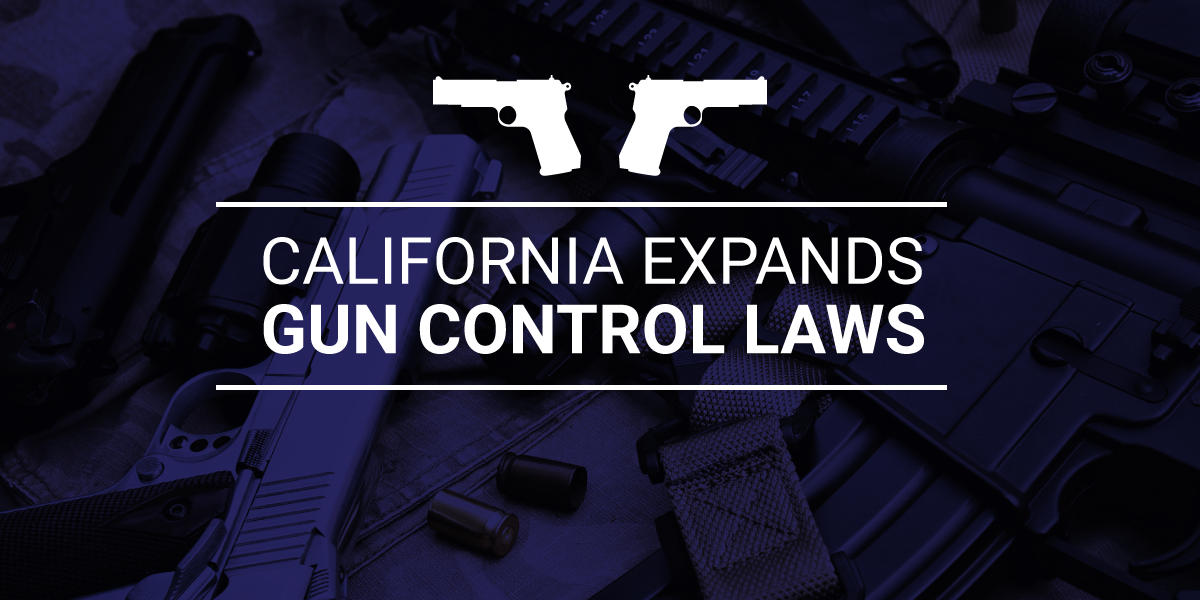
In the wake of the school shooting in Parkland, Florida, activists demanded change to our nation’s gun control laws. California — already home to some of the most restrictive gun control laws in the country — responded. On August 28, 2018, the California Legislature passed a series of four gun control measures designed to prevent such mass shootings. If signed by Governor Jerry Brown, these laws will bring about substantial change to the state’s already strict gun control laws. They will also have a significant impact on the individual rights of Californians.
Gun Control Laws: How They Affect You
Gun control laws are hot topics in American politics. No matter what your position on the right to bear arms may be, it is important to understand this new legislation and how it may affect you. Parsanj Law Group is dedicated to assisting our clients through each stage of the criminal justice process, which includes providing advice on laws that may impact their lives.
Below, Glendale criminal defense attorney, Rana Parsanj, has outlined the four new gun control laws, discussing how they will change existing law and what you need to know if you are a gun owner. If you would like to learn more, contact us at 818-698-6680.
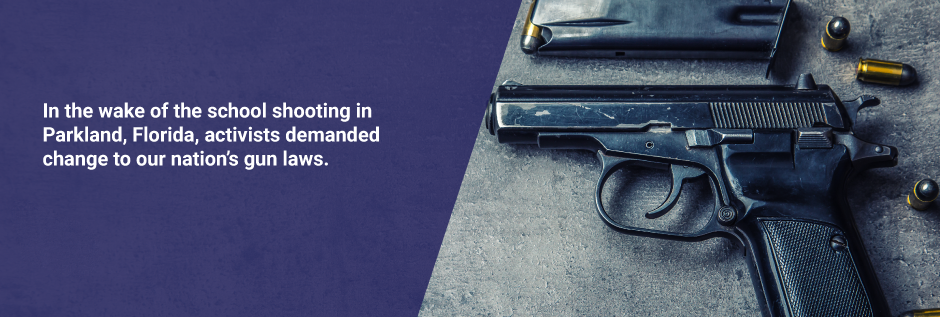
Expansion of Gun Violence Restraining Orders
California is one of the few states in the country with a “red flag” law, which allows police or a family member to petition a court to order the temporary removal of firearms from a person who may be a danger to others or themselves.
Assembly Bill 2888 amends California’s current law to allow a court to issue an ex parte gun violence restraining order against any subject of a petition who poses a significant danger of harm to themselves or to others. The term “ex parte” means that the subject of the petition — the gun owner — does not have to be present.
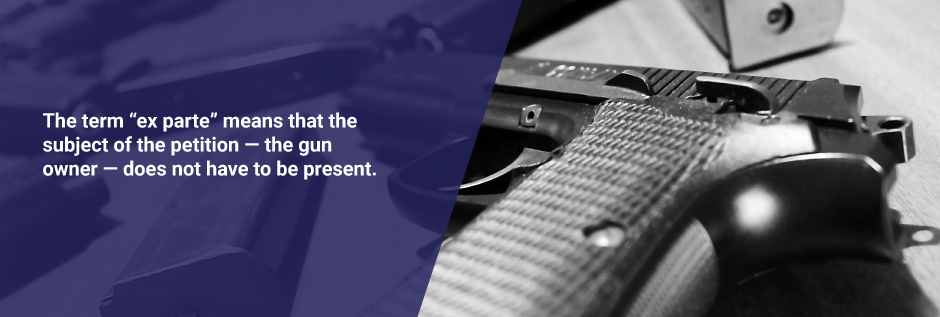
In other words, a concerned family member can request a restraining order without the gun owner knowing about it until the order has been granted. This restraining order, sometimes known as an extreme violence protection order, can last for a year or for an indefinite period of time. It can also be renewed through a new petition.
A major change in the law, as amended by AB 2888, is that instead of being limited to immediate family members and police officers, other community members can now request gun violence restraining orders. This includes employers, coworkers and teachers.
If a person is subject to a gun violence restraining order, he or she cannot possess a firearm or ammunition. The protection order also prohibits the person from owning, purchasing, possessing, receiving, or attempting to purchase or receive a firearm or ammunition.
Lifetime Bans for Domestic Violence Convictions
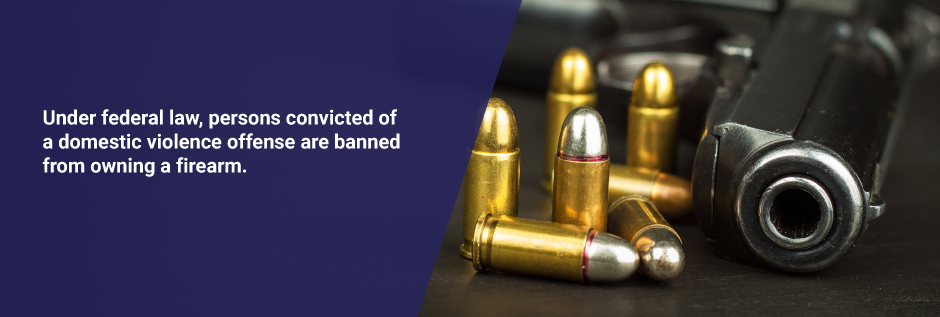
Under federal law, persons convicted of a domestic violence offense are banned from owning a firearm. Until the passage of Assembly Bill 3129, California law has imposed a far shorter ban of 10 years for defendants convicted of a domestic violence misdemeanor. Now, California imposes the same lifetime ban as the federal government for anyone convicted of this type of crime.
While this consequence may seem harsh, there is a sound basis for it in research. According to a study in the American Journal of Public Health, the presence of a gun in domestic violence situations increases the risk of homicide by 500%. Given this reality, a lifetime ban on gun ownership for anyone convicted of a crime of domestic violence made sense to the California Legislature.
However, it does raise the stakes considerably if you are charged with domestic violence — making it all the more important to contact an experienced Glendale criminal defense attorney to defend against the charge.
Lifetime Bans for Mental Health Issues
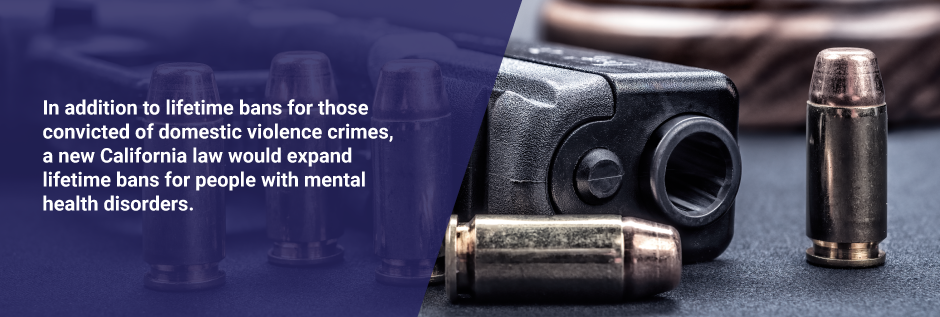
In addition to lifetime bans for those convicted of domestic violence crimes, a new California law would expand lifetime bans for people with mental health disorders. Under current California law, a person admitted to a designated mental health facility for posing a danger to self or others (known as an involuntary psychiatric hold) is barred from possessing a gun for a period of 5 years following release. Assembly Bill 1968 changes this law so that anyone placed on an involuntary hold twice in one year may face a lifetime ban on owning firearms.
While this bill may seem draconian, there is a potential way to have this ban lifted. A person subject to a ban under this law can petition the court and have their Second Amendment rights restored by proving that they intend to own and use a firearm in a “safe and lawful manner.”
Additional Requirements for Concealed Carry Weapons Permits
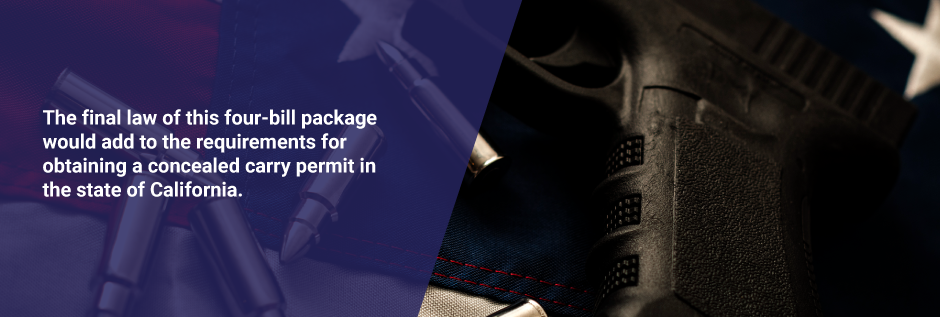
The final law of this four-bill package would add to the requirements for obtaining a concealed carry permit in the state of California. Currently, to obtain a Carry Concealed Weapon (CCW) permit, a person must comply with the laws of the city and county in which they reside. Here in Los Angeles County, the CCW license requires a general training course, possible psychological testing and proof of good moral character.
Under Assembly Bill 2103, all applicants for a CCW permit must receive at least 8 hours of specialized training on firearm safety, handling and technique. In addition, applicants must pass a live-fire shooting test on a firing range. These requirements are in addition to any local qualifications for a CCW permit.
Work with a Skilled Glendale Criminal Defense Attorney
California continues to lead the country when it comes to restrictive gun control laws. While these measures may help to keep our communities safer, they may also infringe on individual rights. This is particularly true if your constitutional rights are impacted based on a conviction for a crime that you may not have committed.
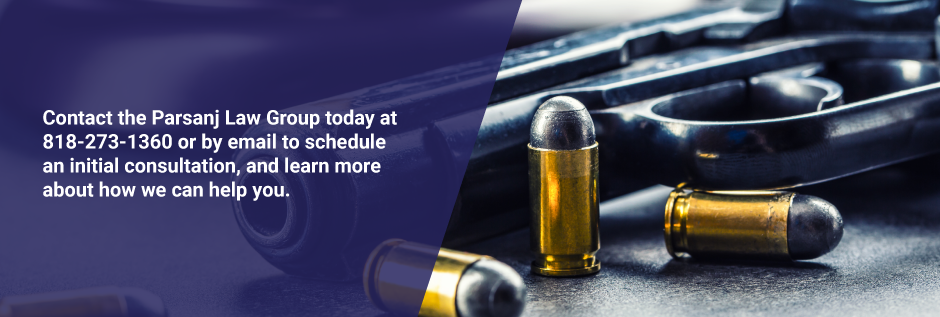
Having a seasoned Glendale criminal defense attorney to represent you can make the difference in protecting both your rights and your freedom. Attorney Rana Parsanj has substantial experience as both a public defender and a private criminal defense attorney. He has dedicated his career to defending people accused of crimes. Contact the Parsanj Law Group today at 818-698-6680.

